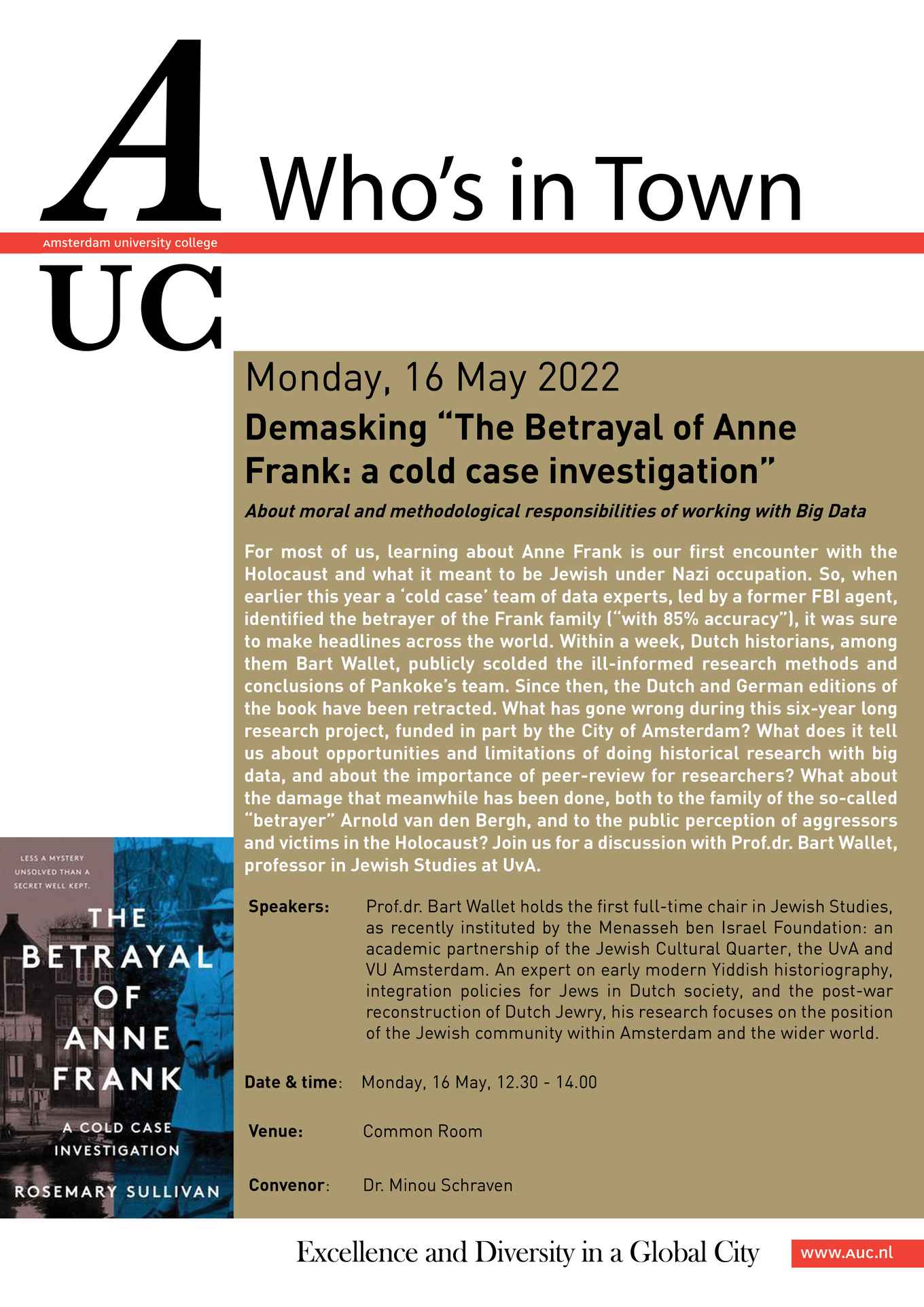WiT: Bart Wallet "Demasking 'The Betrayal of Anne Frank: a cold case investigation'"
About moral and methodological responsibilities of working with Big Data
- Date
- 16 May 2022
- Time
- 12:30 -14:00
- Location
- Amsterdam University College (AUC)
- Room
- Common Room (0.08)
Abstract
For most of us, learning about Anne Frank is our first encounter with the Holocaust and what it meant to be Jewish under Nazi occupation. So, when earlier this year a ‘cold case’ team of data experts, led by a former FBI agent, identified the betrayer of the Frank family (“with 85% accuracy”), it was sure to make headlines across the world. Within a week, Dutch historians, among them Bart Wallet, publicly scolded the ill-informed research methods and conclusions of Pankoke’s team. Since then, the Dutch and German editions of the book have been retracted. What has gone wrong during this six-year-long research project, funded in part by the City of Amsterdam? What does it tell us about the opportunities and limitations of doing historical research with big data, and about the importance of peer-review for researchers? What about the damage that meanwhile has been done, both to the family of the so-called “betrayer” Arnold van den Bergh, and to the public perception of aggressors and victims in the Holocaust? Join us for a discussion with Prof.dr. Bart Wallet, professor in Jewish Studies at UvA.
Speaker
Prof.dr. Bart Wallet holds the first full-time chair in Jewish Studies, as recently instituted by the Menasseh ben Israel Foundation: an academic partnership of the Jewish Cultural Quarter, the UvA and VU Amsterdam. An expert on early modern Yiddish historiography, integration policies for Jews in Dutch society, and the post-war reconstruction of Dutch Jewry, his research focuses on the position of the Jewish community within Amsterdam and the wider world.
Convenor
Dr. Minou Schraven
Venue
Common Room

